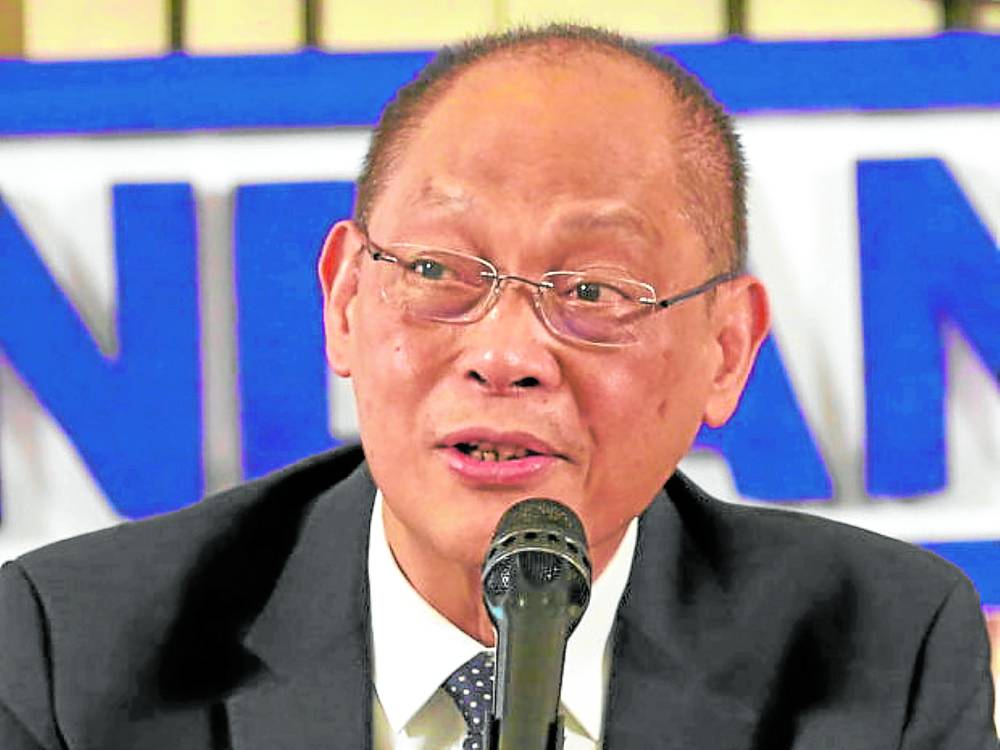
Finance Secretary Benjamin Diokno. FILE PHOTO
MANILA, Philippines — The Marcos administration will check if potential loans from China for three railway projects would still be feasible despite the Duterte administration stopping the application for long-delayed financing before it stepped down.
“The new administration can revisit the projects,” Finance Secretary Benjamin Diokno said Friday. “If found worthwhile, it may choose to restore the loan application, if funding is still available.”
Diokno, who serves as President Marcos’ chief economic manager, did not reply when asked to comment on concerns that Chinese financing pledges for Philippine projects had been slow, even at the height of closer Manila-Beijing ties during the previous administration.
Transportation Undersecretary Cesar Chavez said in a statement that the Department of Finance (DOF) under former secretary Carlos Dominguez III pulled out of applications for Chinese loans for the Mindanao Railway, Subic-Clark Railway, as well as Philippine National Railways (PNR) South Long-Haul projects.
In its last month in office, the Duterte administration borrowed 2.3 billion renminbi (about P17.4 billion) from China to build a bridge connecting the former president’s hometown Davao City and Samal Island.
China’s last loan to the Duterte administration was also its first official development assistance (ODA) denominated in the Chinese currency. In the past, the Philippines’ ODA loans from China were denominated in US dollars, as Philippine officials wanted parity and comparable interest rates with other ODA loans extended by other bilateral development partners like Japan and South Korea as well as multilateral lenders.
This loan was slapped with an interest rate of 2 percent per annum, payable in 20 years plus a seven-year grace period.
This Chinese financing for the four-lane Samal Island-Davao City connector will bankroll 90 percent of the project’s design-and-build contract amounting to P19.3 billion.
In all, the Duterte administration borrowed from China a total of $1.1-billion worth.
The other Chinese loans obtained by the Duterte administration included those to build the National Irrigation Administration’s (NIA) Chico River pump irrigation; the Metropolitan Waterworks and Sewerage System’s (MWSS) New Centennial Water Source-Kaliwa Dam; as well as the Department of Transportation’s (DOTr) PNR South Long-Haul.
Back in 2016, Dominguez said the Chinese loan for the P12.2-billion New Centennial Water Source-Kaliwa Dam project had terms that were “at least 30-percent better than the loan secured by the Arroyo administration and wholeheartedly accepted by the [Benigno] Aquino [III] administration” for the Angat Water Utilization and Aqueduct Improvement Project Phase 2.
Dominguez had said the $211.2-million, US dollar-denominated loan for Kaliwa Dam had a lower interest rate, longer grace period, lower commitment fee, lower management fee and had no prepayment penalty fee, compared with the borrowing approved by then President Arroyo in 2010 for Angat.
The P4.4-billion Chico River Pump Irrigation Project, meanwhile, was the first flagship infrastructure project financed by Beijing under the Duterte administration’s ambitious “Build, Build, Build” infrastructure program.
RELATED STORY:
Imagining infrastructure beyond ‘Build, Build, Build’

